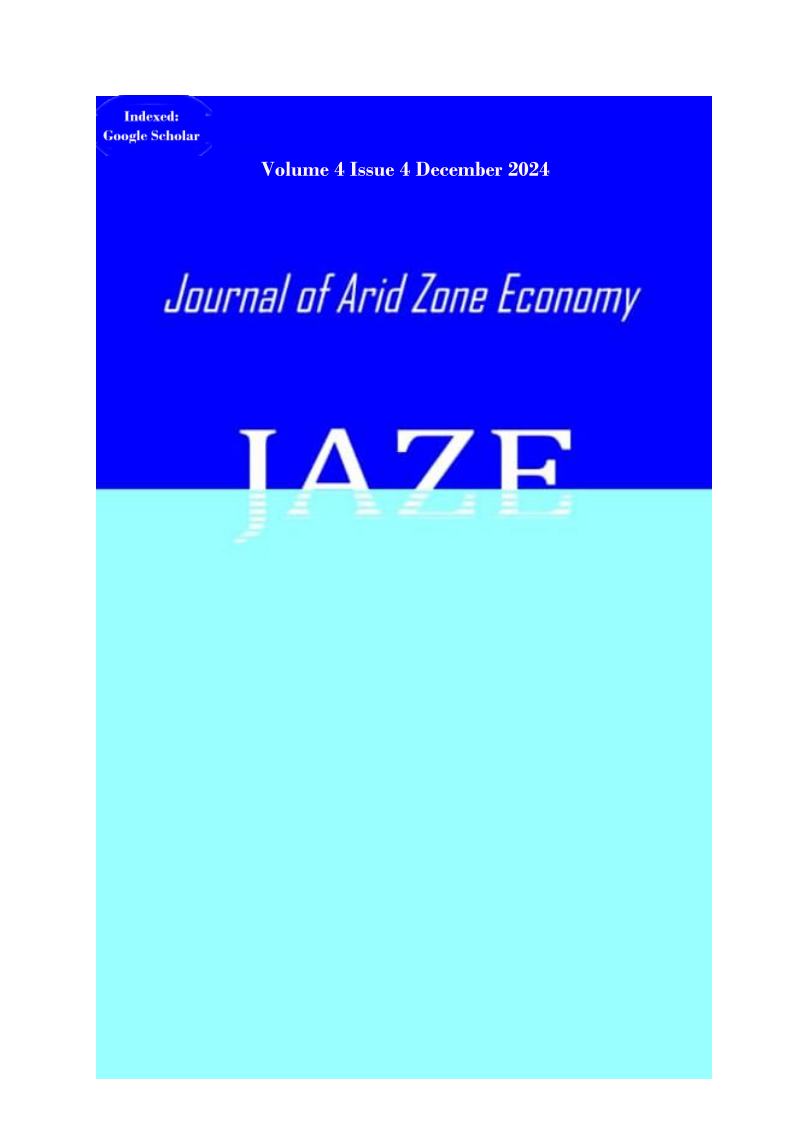Evaluating the Impact of Interest Rate Fluctuations on Investment Patterns in Nigeria
Keywords:
ARDL, Interest rate, Investment, ECMAbstract
This study empirically investigates the impact of interest rates on
investment in Nigeria using annual time series data from 1986 to 2023.
Employing the Autoregressive Distributed Lag (ARDL) approach, the
analyzed key variables including investment, interest rate, inflation rate,
exchange rate, GDP growth rate, and money supply. The ARDL results
indicate that, in the short run, interest rates exert a negative and
significant effect on investment, while inflation, exchange rates, GDP
growth, and money supply positively influence investment. Similarly, in
the long run, interest rates consistently demonstrate a negative impact on
investment, whereas inflation, exchange rates, GDP growth, and broad
money supply show a positive relationship. Additionally, the Toda and
Yamamoto causality tests reveal unidirectional causality between interest
rates and investment, as well as between inflation and investment, and
exchange rates and investment. Given these findings, the study
recommends that monetary authorities implement policies aimed at
lowering interest rates to foster investment in the Nigerian economy.
Furthermore, the Central Bank should adopt aggressive monetary
strategies to reduce lending rates to near single-digit levels, thereby
stimulating investment growth and supporting sustainable economic
development.

Downloads
Published
Issue
Section
License
Copyright (c) 2024 Journal of Arid Zone Economy

This work is licensed under a Creative Commons Attribution 4.0 International License.

